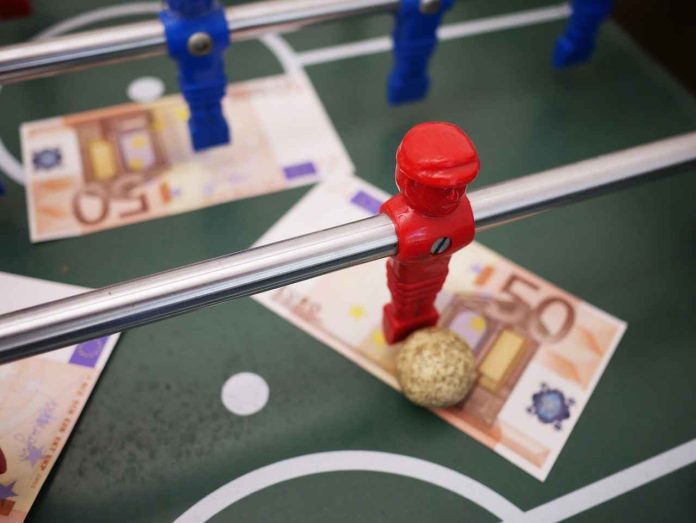The thrill of winning a big bet is hard to beat. Whether you have an annual flutter on the Grand National or are a seasoned gambler, the feeling you get when you beat the bookies is unrivaled.
But even when we win with great odds, do we ever really “beat the bookies”? How is it that when heavily-backed favorite triumphs in the race of the year, bookmakers never seem to bat an eyelid and instead are ready and waiting for our bets on the next contest?
Simply put, what we want to discover is how bookmakers make their money. According to Online Bookies, it is more complicated than might first meet the eye.
Table of Contents
Winners and Losers
Years ago, a wise man took his 18-year-old son to the betting shop for the first time. This was in the days when bookies had separate windows at the counter for placing bets and collecting winnings.
“Look, son. There are two windows for paying in, and only one for paying out. That should tell you something.”
It is a very straightforward notion; every losing bet is a winning bet for your opponent, the bookmaker, and as we all know, there are plenty of losing bets made every second, earning more and more money for the betting company.
But bookmakers cannot control the outcome of sporting events, so how do they keep earning when the favorites keep winning?
The Vigorish Technique
This is the main method that bookmakers use to keep things stacked in their favor. Also known as the margin or the overground, the vig allows the betting company to keep control of the amount of money they can lose on any given event.
To explain how it works, let’s use the example of a coin toss. In reality, every coin toss is a 50/50 outcome – heads or tails. Therefore, betting on the outcome of a coin toss should be 1/1 or an even money bet.

If a bookmaker offered bets on a coin toss and 100 people betted £1 each on the outcome, 50 heads and 50 tails, then the bookmaker would make exactly £0. Making nothing is better than making a loss, but bookies, like everyone else, are in business to make money, and they must guarantee they do so.
This is where the vigorish comes in. Vigorish acts like a commission charge on bets, adapting the odds to allow the bookie to keep something back for themselves, whatever the outcome, and only lose what they can afford to.
For outcomes that are genuinely equally likely, such as coin tosses, it is common to see odds such as 10/11. With these odds, the amount the bookmaker wins on losing bets is greater than the amount they will pay out on winners, providing a small profit margin.
Yes, if 90% of punters bet on “heads” and won, the bookie would make a loss, but a loss they can afford, which Vigorish has taken into account.
This system is applied to all odds, from those of odds-on favorites to rank outsiders. When you do see a horse with odds of “Evens” it is believed to have a better than 50% chance of winning, but thanks to vigorish, you will not get those odds.
Setting the Odds
Have you ever wondered how odds on the day of the event can change so drastically? Or perhaps how those odds are determined in the first place?
Setting odds is the job of odds compilers, probably the most important job within the betting industry. They have to take an endless number of factors and statistics into account when determining what price to offer punters.
As well, using the form of the competitors and vast sporting knowledge surrounding the event and the competitors, they must weigh up the predicted amount of money that will be bet on certain outcomes and all the while, keep in mind the amount of money the bookmaker can afford to lose.
This all concludes with a number representing the chances of an outcome before vigorish is applied to put the margin in the house’s favor.
Once all that is done, the compilers update the odds depending on what is happening to surround the event.
Did the horse not eat the night before? Has the tennis player recovered quicker than expected from an injury? Did the football team’s coach break down on the way to the game? All seemingly minute factors like those could change the odds, and the compilers have to be aware.
Particular betting patterns can also influence odds. If someone places a £10,000 bet on the out-of-form 20/1 shot at Cheltenham, those odds will quickly shorten. Just in case that punter knows something the compilers do not, they will cut their losses on all future bets on that horse.
Balancing the Books
All bookmakers aim for balanced books, which is where – regardless of the outcome – they make a profit on an event.

This profit margin is calculated by the amount wagered on each outcome and its odds. If Liverpool is the favorite for a match against Chelsea, then the bookmaker will want a bigger percentage of the total to be wagered on Liverpool.
However, they will want the percentage to be manageable; otherwise, they risk a loss if Liverpool wins. Likewise, if the amount bet on Chelsea gets too close to the 50% mark and they win, the bookmaker will again suffer a loss.
Therefore, they must create a balance by shortening and lengthening odds by the right amount at the right times to encourage or discourage the bets that will help them make a profit, whoever wins.
Summary
With such methods, the bookies always win in the long run! Having said that, hours studying the form and a little luck here and there might be enough for you to at least feel like you have taken them to the cleaners!
Written by: By Anthony Tomas




